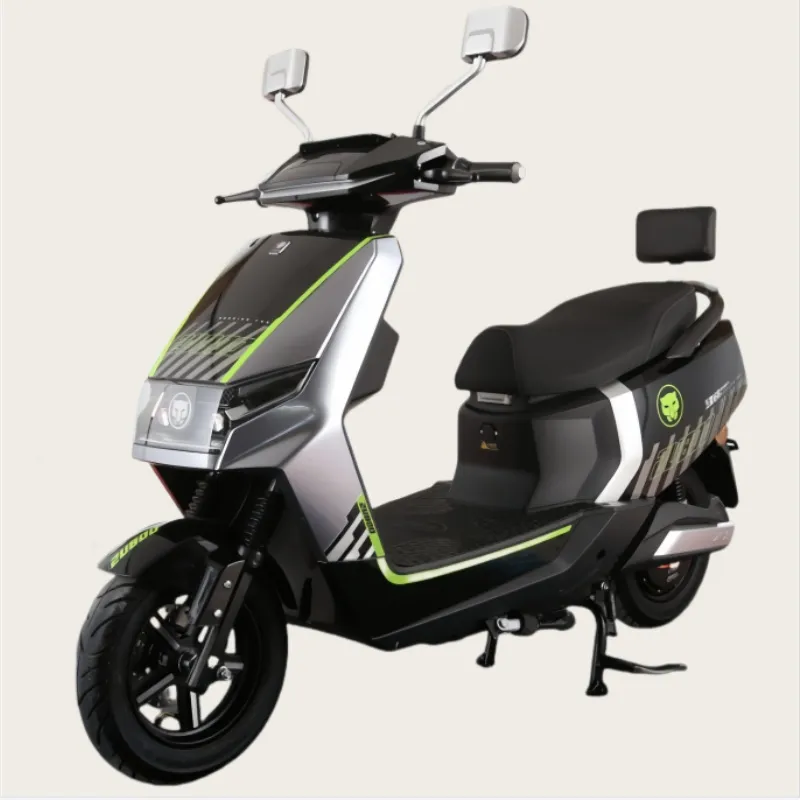A New Era of Two-Wheeled Mobility
With the rapid growth of green transportation and the rising demand for energy efficiency, the debate between electric motorcycles and gasoline motorcycles is more relevant than ever. Consumers today are not just looking for speed or style; they are focused on long-term cost, sustainability, and adaptability to modern infrastructure. Choosing between electric motorcycles and their gasoline counterparts means weighing more than horsepower—it’s about overall lifestyle compatibility.
Cost Considerations
Purchase Price and Incentives
Traditionally, gasoline motorcycles have been perceived as more affordable. Their simpler manufacturing processes and widespread availability often mean lower upfront prices. However, the gap is narrowing. In 2025, many electric motorcycles are benefiting from technological advances, increased production volume, and government incentives or tax rebates in many countries. These benefits reduce the overall cost, especially in the mid-range and commuter categories.
Maintenance and Longevity
Electric motorcycles have fewer moving parts than gasoline engines, resulting in reduced wear and tear. There are no oil changes, fewer fluid replacements, and less frequent brake pad replacements due to regenerative braking. On the other hand, gasoline motorcycles require regular tune-ups, oil filters, spark plugs, and fuel system maintenance. Over the long run, electric motorcycles typically save owners hundreds—if not thousands—of dollars in upkeep.
Performance and Convenience
Riding Experience
Electric motorcycles are often praised for their smooth, quiet operation and instant torque delivery. The acceleration feels more immediate, especially in city environments where stop-and-go traffic is common. Gasoline motorcycles, while offering more “engine feedback” and traditional riding appeal, tend to require more rider input and mechanical awareness to maintain performance levels.
Refueling vs. Charging
Gasoline motorcycles have an advantage when it comes to quick refueling—just a few minutes at any gas station. However, electric motorcycles are becoming more convenient as charging infrastructure grows. Many models now offer fast-charging capabilities, enabling up to 80% charge in under an hour. For daily commuters, charging overnight at home is often sufficient, and the cost of electricity is much lower than gasoline per mile.

Environmental Impact
Emissions and Sustainability
Electric motorcycles are zero-emission at the point of use, helping reduce urban air pollution and overall carbon footprint. This makes them ideal for eco-conscious riders and those living in areas with strict emissions regulations. Gasoline motorcycles, on the other hand, produce CO2 and other harmful gases, contributing to environmental degradation.
Battery Life and Recycling
Concerns about battery lifespan and disposal have diminished in recent years. Most modern electric motorcycles come with lithium-ion batteries that last for several years or tens of thousands of kilometers. Battery recycling systems are also improving, making electric motorcycles more sustainable over their life cycle.
Range and Infrastructure
Real-World Range
Modern electric motorcycles are now capable of achieving real-world ranges of 100–200 kilometers on a single charge, depending on the model and riding conditions. For most daily riders and city commuters, this is more than sufficient. Gasoline motorcycles still outperform in terms of range per tank, especially in high-displacement models, but the difference matters less for typical daily use.
Charging Station Availability
Public charging stations are becoming more widespread, particularly in urban and suburban areas. Apps and built-in navigation systems now make it easier than ever to locate the nearest station. Additionally, businesses and residential buildings are increasingly installing chargers for employees and tenants. While rural areas may still pose a challenge, the overall landscape is improving rapidly.
Suitability for Urban and Long-Distance Use
Urban Commuting Benefits
Electric motorcycles shine in stop-and-go traffic due to their instant torque, low operating noise, and smooth acceleration. Riders save on fuel and maintenance costs, and cities benefit from cleaner air and quieter roads. Parking and riding restrictions in many cities are also being relaxed for electric two-wheelers, offering more freedom of mobility.
Touring and Long Trips
For riders who frequently take long-distance trips, gasoline motorcycles currently still offer more practicality. The widespread availability of fuel and longer range makes them more suitable for remote or intercity travel. However, with improvements in battery capacity and expansion of charging stations along highways, electric motorcycles are becoming more feasible for touring as well.
Long-Term Ownership Value
Depreciation and Resale
Electric motorcycles are retaining their value better over time as they become more mainstream and accepted. With lower running costs and fewer mechanical issues, many buyers view them as smarter long-term investments. Meanwhile, gasoline motorcycles face growing restrictions and decreasing appeal in eco-conscious markets, which could impact resale prices in the near future.
Technological Advancements
Electric motorcycles are constantly evolving, integrating features like smart connectivity, over-the-air updates, and customizable ride modes. These upgrades not only improve performance but also extend the life and appeal of the vehicle. Gasoline motorcycles, while advanced in engineering, lack the same rapid digital integration pace.
FAQ
Are electric motorcycles more expensive than gasoline motorcycles?
Electric motorcycles may have a higher upfront cost, but government incentives and lower maintenance and fuel costs often make them more affordable in the long run.
Can I take an electric motorcycle on long road trips?
While electric motorcycles can handle long trips, they do require careful planning around charging stations. Improvements in battery range and fast-charging infrastructure are making this easier each year.
How long do electric motorcycle batteries last?
Most batteries last between 5 to 10 years depending on usage. With regular care and moderate charging habits, they can often exceed manufacturer estimates.
Is it cheaper to maintain an electric motorcycle?
Yes. With fewer moving parts and no need for oil changes or exhaust system maintenance, electric motorcycles are typically much cheaper to maintain over time.

